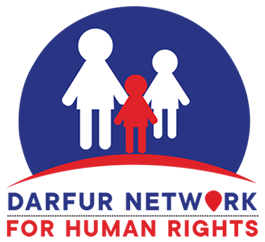January 19, 2025 – Refugees in Chad’s Abu Tanqi and Maji camps have regained internet access after services were suspended due to a financial fee dispute. The restoration of connectivity brings relief to displaced individuals who rely on the internet to maintain communication with loved ones and access vital information.
Internet Suspension in Refugee Camps
On January 16, 2025, internet services provided by Starlink devices were abruptly suspended in the Abu Tanqi and Maji camps. This action followed the Chadian authorities’ imposition of a permit fee for operating the devices.
The camps, located approximately 50 kilometers from the city of Adre, lack traditional internet services, making the Starlink devices critical for communication. The suspension left refugees without a vital lifeline, isolating them in an already challenging environment.
Permit Fees and Resolution
To restore services, authorities demanded:
- $180 per device for 40 devices at the Maji camp.
- $80 per device for 20 devices at the Abu Tanqi camp.
Recognizing the urgent need for connectivity, the camp associations intervened to cover the costs of the permits. Following negotiations, internet services were reinstated on January 19, 2025, allowing refugees to reconnect with family members and humanitarian organizations.
The right to communication is a fundamental human right, and the suspension creates undue barriers for vulnerable refugees. We commend the efforts of the camp associations in restoring services. However, we urge Chadian authorities to ensure that refugees’ access to communication is never compromised again.
Why Internet Access Matters
For refugees, internet access is essential—not a luxury. It provides:
- Communication: Refugees can stay connected with family and loved ones, offering emotional support during displacement.
- Access to Information: Internet services help individuals stay informed about ongoing conflicts, legal rights, and available resources.
- Coordination with Aid Organizations: Humanitarian agencies use online platforms to organize services, support displaced communities, and share critical updates.
The suspension highlighted the fragility of these services and the urgent need for systemic solutions.
A Broader Call to Action
The temporary suspension of internet services reflects a broader issue: the vulnerability of refugees when essential rights are tied to financial and bureaucratic barriers. DNHR calls for:
- Protecting Communication Rights: Authorities must ensure that access to communication is upheld as a fundamental right.
- Removing Barriers: Financial fees and administrative hurdles that restrict basic services for refugees must be eliminated.
- Ensuring Consistency: Policies governing access to vital services should prioritize the dignity and well-being of displaced populations.
Conclusion
The restoration of internet services in Abu Tanqi and Maji camps is a welcome development, but it underscores the need for ongoing vigilance and advocacy. Communication is more than a convenience—it is a lifeline for refugees navigating the challenges of displacement. DNHR remains steadfast in its commitment to protecting the rights of displaced individuals and ensuring they have access to the resources and support they need.

